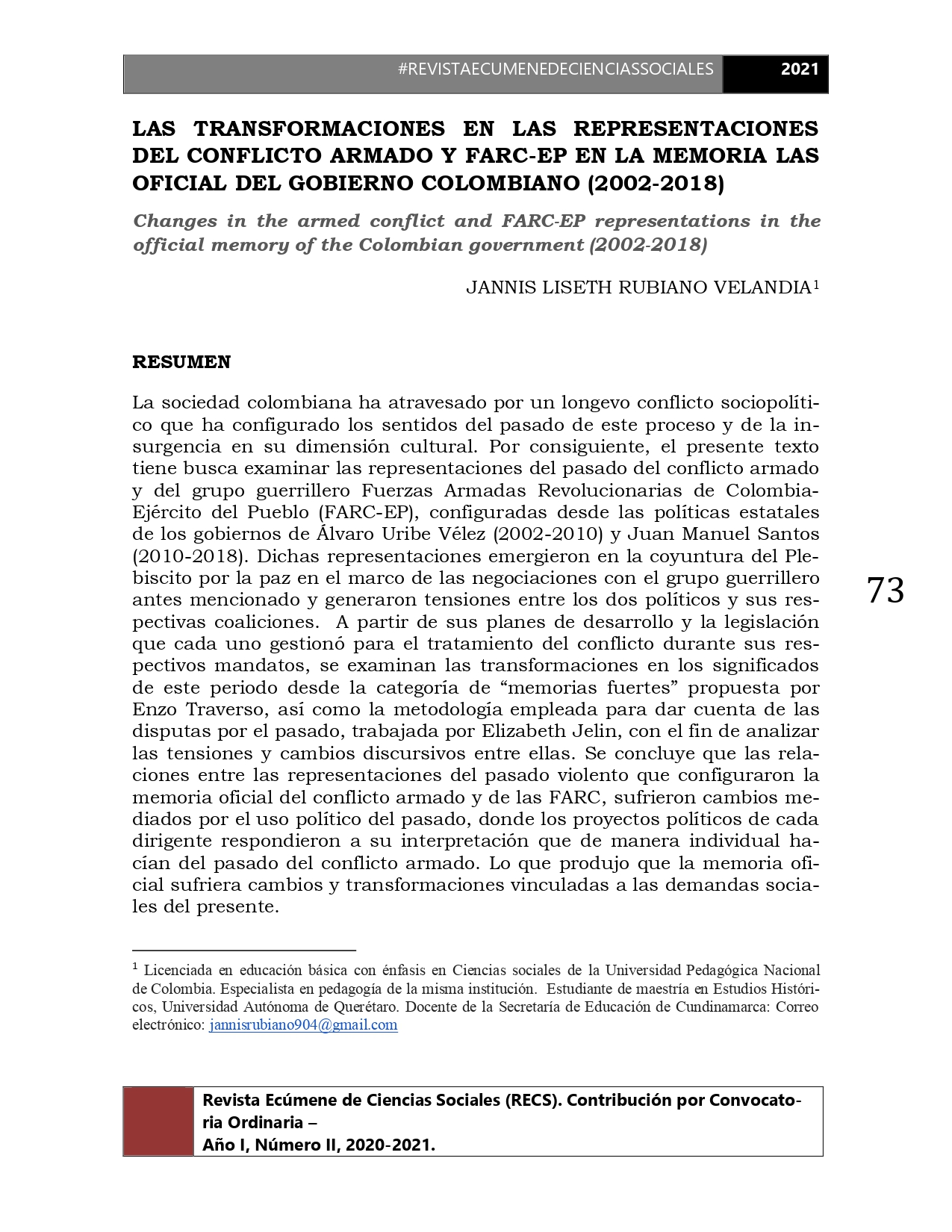Abstract
The Colombian society has been in a long sociopolitical conflict that have configurated the historical meanings about it. This process has affected the cultural dimension of the past and the insurgency too. In this sense, this paper examines two representations configurated in the state policy of governments in Álvaro Uribe Vélez (2002-2010) and Juan Manuel Santos (2010-2018) periods: the representations are about the armed conflict and the political status of Fuerzas Armadas Revolucionarias de Colombia (FARC-EP) group. Those representations reborn in a context of peace negotiations where it took place a peace plebiscite, this situation caused political tensions between these two politicians and their coalitions. Their Development Plans and bills are investigated for to analyze the transformations of the meanings on the period of 2002-2018 through the category of "Strong memories" from Enzo Traverso. In this sense, the methodology used for to expose this dispute is taken from Elizabeth Jelin theory: this author allows analyze discursive tensions and changes between them. It permits conclude that the relations between the representations of the violent past that configurated the official memory and the FARC's status changed by the political use of the past. In these representations, the political projects of the leaders are based on their point of view of the historical period of the Colombian conflict. This situation had an impact on the official memory because it suffered changes and transformations associated with the situation of the present time.

This work is licensed under a Creative Commons Attribution-NonCommercial-ShareAlike 4.0 International License.

